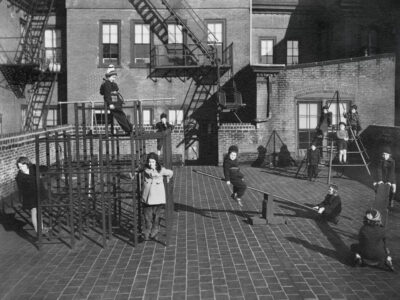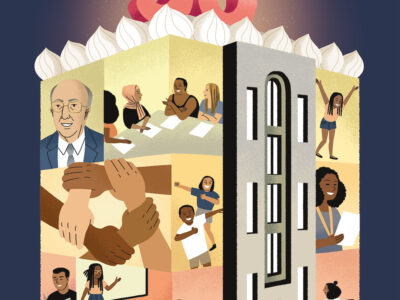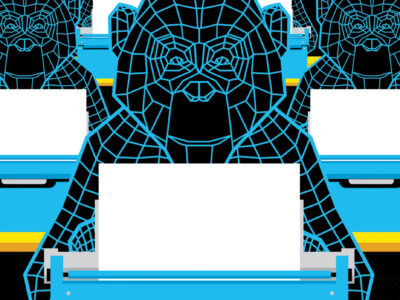The kids — some 2,500 of them — showed up on Halloween to tour a haunted mansion in East Orange, N.J., and catch a glimpse of recording artist Lauryn Hill. But before they left, many had also received free health screenings and signed up for medical insurance. That was no coincidence, according to Raqiba Sealy, C’94, executive director of the Refugee Project, which co-sponsored the event. In fact, her non-profit organization specializes in sneaking in education and social programs while the children it serves are having fun. Hill, who first became famous as the lead singer of the Fugees, founded the Refugee Project in 1996. She brought Sealy on board last March.
Sealy, while a psychology major at Penn, met Hill through her brother, Malaney Hill, EAS’94. Sealy then took a job in marketing at Sony Music after graduation. When the Fugees’ first album came out under the Sony label, Sealy and Hill reconnected and decided they would like to work together someday.
The Refugee Project uses social interaction, positive activities, and educational experiences to create transformative opportunities for disadvantaged students. Sealy’s job keeps her busy developing programs and assessing their outcomes, searching for funding, and working with volunteers. Recently she was working on how to combine Hill’s upcoming concert tour with nationally- and internationally- focused “community service drives” involving young people in each city she visits. Although the primary focus of the Refugee Project has been the community of South Orange, N.J., “a lot of people based on [Hill’s first solo] album are asking how they can help.”
The Refugee Project’s main program is the summer camp it runs for “at-risk” students, ages 10-13, in the Catskill Mountains. What makes Camp Hill different from most summer camps, Sealy says, is that it’s “values-driven. We implemented a program where we teach children about teamwork, responsibility, discipline, trust.” Between sports and talent shows, speakers talk to them about positive peer pressure, media influences, and careers. “A lot of children didn’t have anything to write or talk about [in school],” Sealy adds. “Going away to camp, helping to build a campfire, telling scary stories, that cultivates experience and gives them something to talk about in school.” The second part of the camp is a two-year mentoring program which matches the kids with college students and professionals to give them everyday heroes to emulate.
Kids need to be taught “what ethics means, how to choose a value system,” Sealy says. “I think what has been done before by schools, major religious systems, and even families isn’t really done now for children coming up,” she says. “It frightens me to think of what could happen if we don’t take action.”
Other projects in the works are the Harlem Renaissance initiative, which Sealy says will use contemporary artists to get kids involved in poetry and writing “without boring them to death,” and a New Jersey mural initiative, set to begin this spring.
Wednesday, April 2, 2025
Popular
Administration
Anniversary
Archaeology
Architecture
Art
Awards
Books
Calendar
Campus Life
Commencement
Education
Elsewhere
entrepreneurs
Events
Exhibition
Expert Opinion
Faculty
Film
Football
Gifts
Health
Healthcare
Heard on Campus
History
International
Leadership
Medicine
Men's Basketball
Music
notes
obits
painting
Penn Medicine
Penn Museum
Philadelphia
Photography
Poetry
Politics
Science
Student Life
Technology
Television
Theater
Wharton
Window




